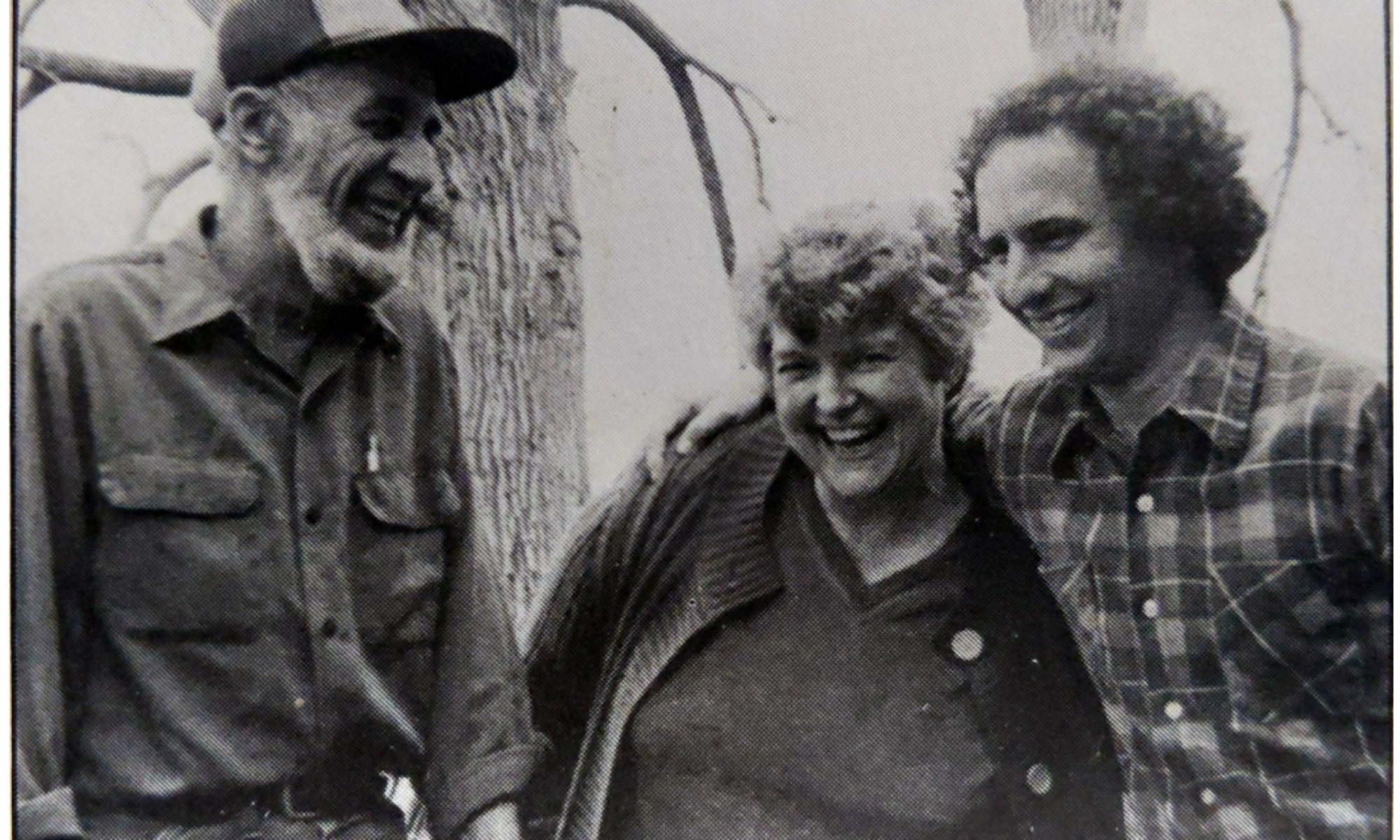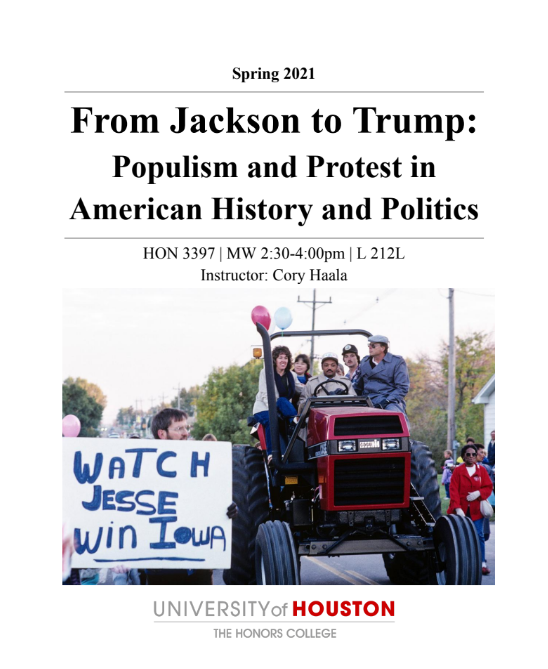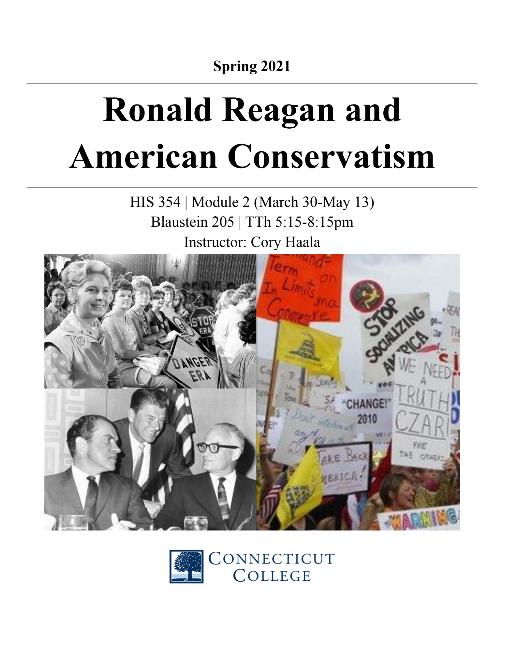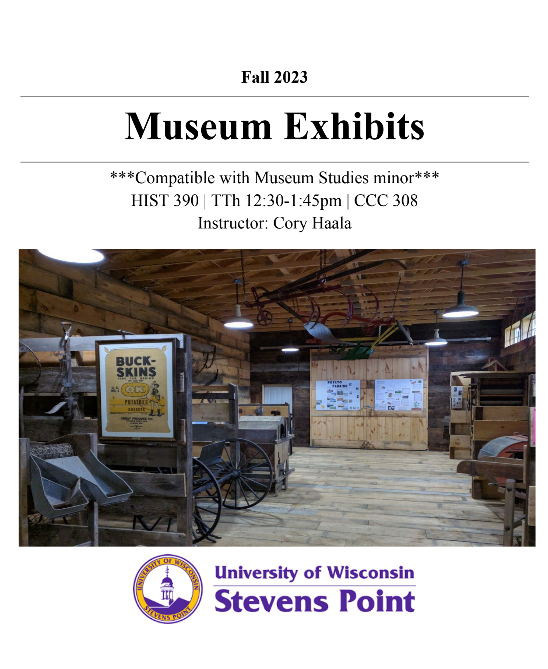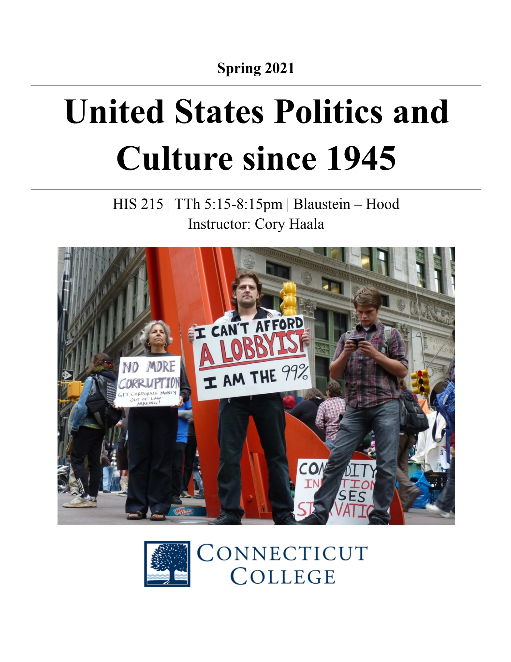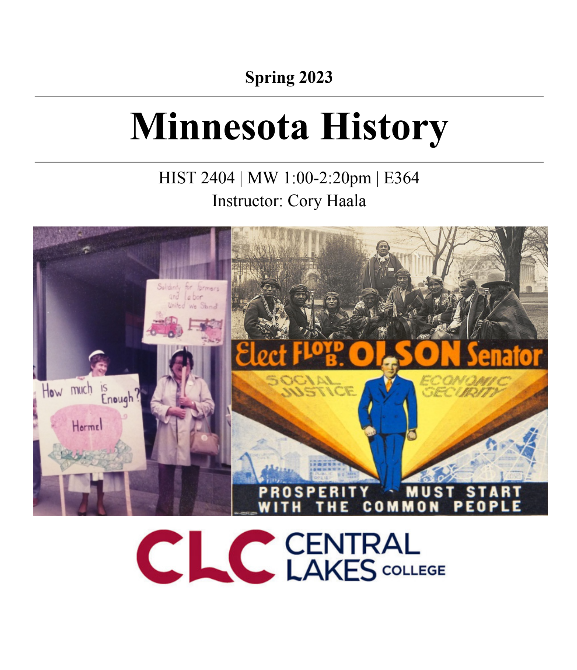Courses Taught and Syllabi
Syllabi available upon request — please see the email in my profile!
From Jackson to Trump: Populism and Protest in American History and Politics
“Grassroots activist movements—populist movements, if you will,” historian Donald Critchlow concluded in his 2020 study In Defense of Populism, “are essential to American democracy.” Yet today we often know “populism” or “populists” as larger-than-life “conservative” or “liberal”. Can an ideology—or a movement—be so ubiquitous in America as to characterize both sides of the political aisle? This course explores how societal conflicts between the “elites” and the “people”, those conflicts have challenged American republicanism, defined democracy, and reshaped laws and government across the nation from the 1800s to the present.
Reagan and American Conservatism
This seminar explores the history of the modern American Right from the New Deal through the 2016 election of Donald Trump, with particular attention to the central role of Ronald Reagan in the policies, ideologies, and changes within conservative movement(s) from the 1950s to the present. This course approaches “conservatism” not as a fixed set of ideas, but as a set of social, political, intellectual, and cultural phenomena with complex intersections and divergences. We examine groups, individuals, and movements who have claimed the label “conservative” and those who had that label applied to them, tracing the triumphs and failures of conservatism, from struggles over public policy and those policies’ repercussions to the cultural changes—racial, gendered, class-based, and more—in the United States that both spurred and enraged conservatism.
Museum Exhibits
This course is an introduction to the history, theory, and practice of museum exhibits. During the semester, students study and experience the process of exhibit development by viewing local and digital museum exhibits and analyzing them in light of best practices in museum exhibition, including controversies and case studies in the field. Engaging with local historical archives and collections, students then write, plan, design, and display a museum exhibit for the campus community and general public.
U.S. Politics and Culture since 1945
Covering themes from suburbanization and civil rights to the growth of the federal government and globalization, this course charts the rise—and possibly fall—of the U.S. as the dominant global power. We follow competing visions for America’s future, from the “New Deal Order” to the “Reagan Revolution” and into the Age of Trump, comparing political debates—presidential politics, political theory, economic and foreign policy, and national campaigns—and lived experiences of everyday Americans—grassroots movements, local organizing, and popular culture. Juxtaposing primary sources like campaign speeches and policy memos with literature, film, music, and other everday media, we will explore the changes in American identity through the present day.
Minnesota History
Who is a “Minnesotan”? Why study Minnesota history when there’s so much going on in the world? Is our history just lefse, lutefisk, and April blizzards, or are there stories that we’re missing?
This introductory course surveys Minnesota history, politics, and culture from its geological origins to the present, understanding Minnesota’s internal dynamics, its rich history and populace, and its vital place in global food, health, manufacturing, and more. Through small-scale research projects from Native land acknowledgements to New Deal site cataloging and local archival visits to community leader oral histories, students become active agents in the preservation of Minnesota history.
U.S. History since the Civil War
Many debates over America’s cultural and national identity have their origins in the historical events of the late 19th and 20th century. As modern America argues over the significance of Confederate monuments, the definition of equal rights, and the inclusivity of citizenship, we look to American history for historical context and continuity within these debates. By highlighting themes of race, ethnicity, gender, class, and region, this course helps us better understand not only these broad themes in American history, but our own roles in the making and shaping of modern events. Students will visit campus landmarks, learn research and library skills, and complete scall-scale original historical research.
U.S. History to the Civil War
This survey course introduces the political, economic, social, cultural, and economic developments in the U.S. from pre-contact to 1877. As America today debates the principles upon which the nation was founded, the meaning of rights and citizenship, and the significance and ramifications of slavery, we look to early American history for historical context and continuity within these debates. By focusing on region, class, race, ethnicity, and gender, we better understand not only these broad themes in American history, but the contingencies and interactions which produced and became history.
Student Research Success
You can see examples of student research, senior theses advised, and other public history projects at this link.
